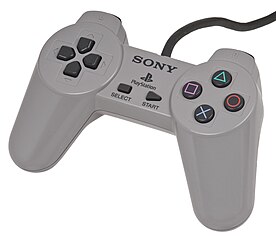Ran across my Playstation CDs last week and wondered if I could get them to work with OpenEMU.
So I took a look at the OpenEmu User-Guide and found the section on CD based games. I thought it was odd that the instructions for a Mac only emulator only listed Windows only tools for converting your CD to use with OpenEMU.
After reviewing the guide it looked like you only needed 2 things:
- Rips from the CD. The CD will consist of one or more tracks. For data tracks create ISO files, for audio tracks create WAV, OGG or FLAC files.
- A CUE file, which is a text based index of the tracks on the CD.
For now I thought I'd concentrate only on CDs with only 1 track as the CUE file for those is extremely simple:
FILE "filename.iso" BINARY TRACK 01 MODE2/2352 INDEX 01 00:00:00
Make the ISO
First up was how to make an ISO. Turns out that's really simple, just use Disk Utility, which is included with OS X. You'll find it in the Utilities folder - quickest way to get there is use the Finder's Go menu, you'll find Utilities towards the bottom. Once opened, find and launch Disk Utility.
Put your Playstation game in your drive, I'm using Spyro the Dragon(the game that got me back into consoles), then find and select the drive in Disk Utility. My Mac Pro uses an external drive, so it's listed in that group:
Create a new image by selected the menu File->New Image->Image from "Untitled". I don't know why it shows "untitled" when Disk Utility clearly shows the name is Spryo.
Specify where to save it and change the Format to DVD/CD Master:
Click Save and after a while you'll end up with a CDR file.
From here you can open up the terminal and use a command line tool to convert the CDR file into an ISO, but it turns out you can just use the CDR file as is. On the off chance you want to convert it, this is the command:
hdiutil convert spyro.cdr -format UDTO -o spyro.iso
Make the CUE
For Spyro this is super simple. Start up TextEdit then select menu option Format->Make Plain Text. Copy this bit of text:
FILE "filename.iso" BINARY TRACK 01 MODE2/2352 INDEX 01 00:00:00
paste it into TextEdit then change filename.iso to match the CDR name:
FILE "spyro.cdr" BINARY TRACK 01 MODE2/2352 INDEX 01 00:00:00
And save it with extension CUE next to the CDR file you created with Disk Utility:
Add to OpenEmu
Launch OpenEMU and select Sony Playstation. Drag and Drop the CUE file. OpenEmu will start to scan the game to import it:
One processed the game will show up, complete with artwork and the proper name:
So far I've processed 6 games:
Some example gameplay:
Overall the games worked well, though there were some hiccups.
- Sometimes a game will stutter. My mini's sporting a 2.6 GHz quad core i7.
- Sometimes the analog control would get stuck. On occasion Spyro would keep walking even though I'd let go of the stick. If I move the stick around it'll unstick, but I did die a couple times when Spyro walked off a ledge. I have Playstation controllers paired with my Mini and have not run into this problem with other games, so there's something up with OpenEmu's emulation of the analog sticks.
- At first I thought Crash and Einhänder weren't working. I'd forgotten that the Playstation controllers did not originally have analog sticks, so some of the earlier games don't know how to use them and thus must be played with the D-Pad.

CDs with audio
While I have not looked into this yet, I thought it would be best to show you how to tell if you inserted a Playstation CD with audio tracks. The CD will show up twice in Finder:
If you check their contents you'll find that one of them contains AIFF files:




















14 Comments
Recommended Comments